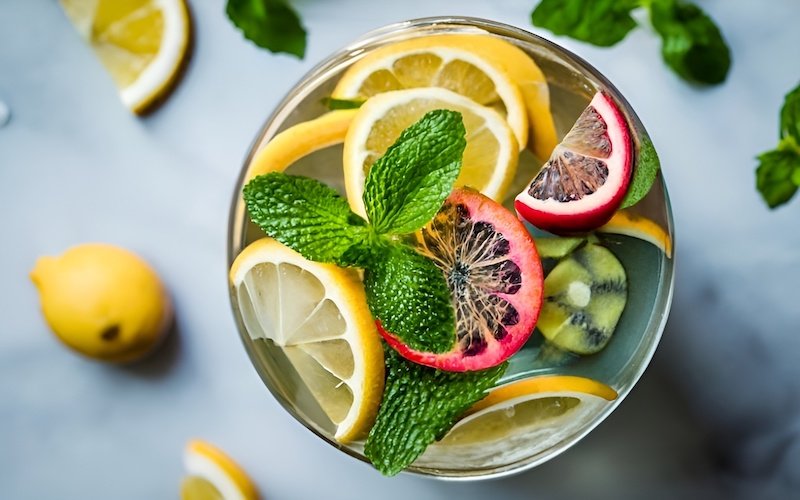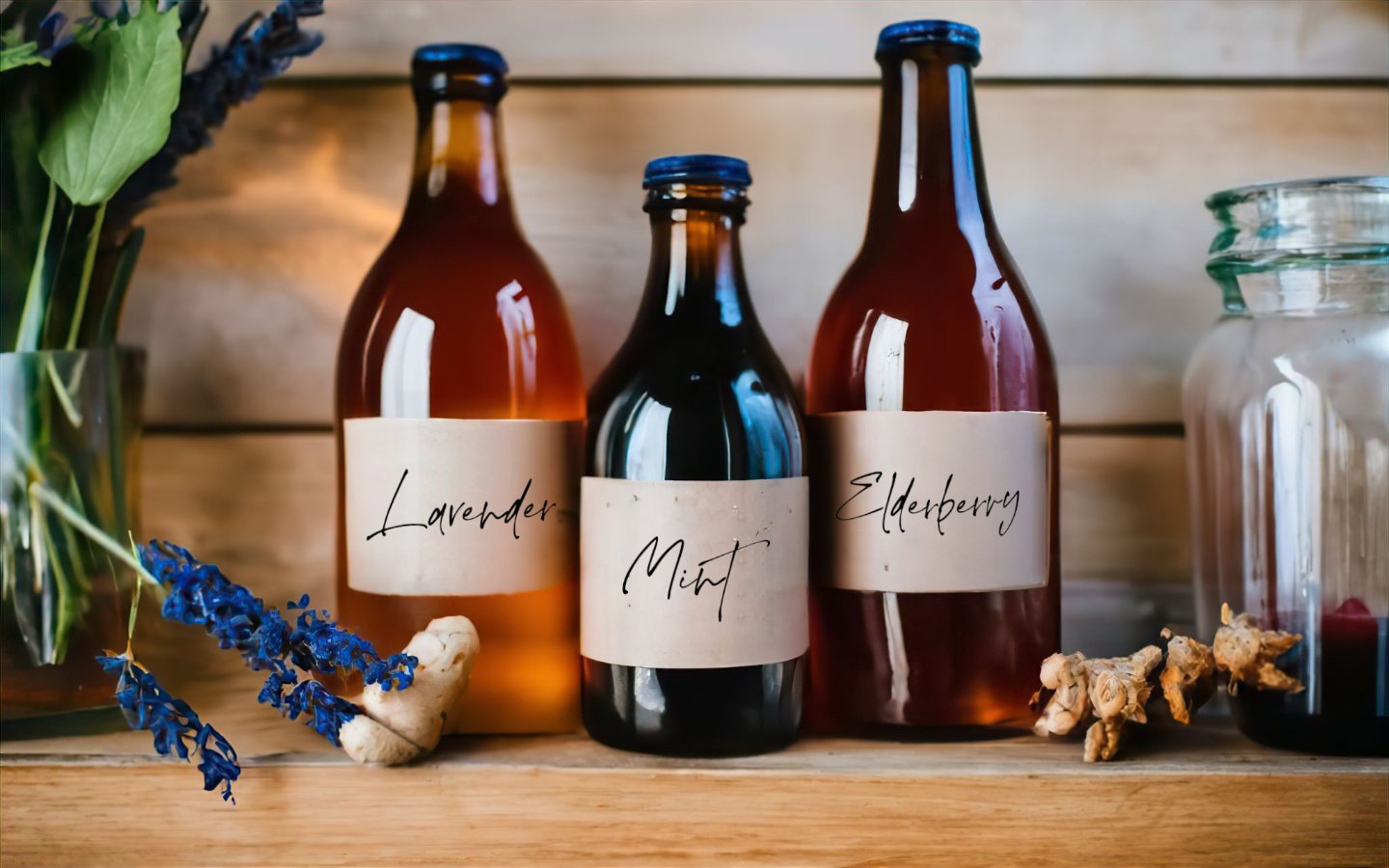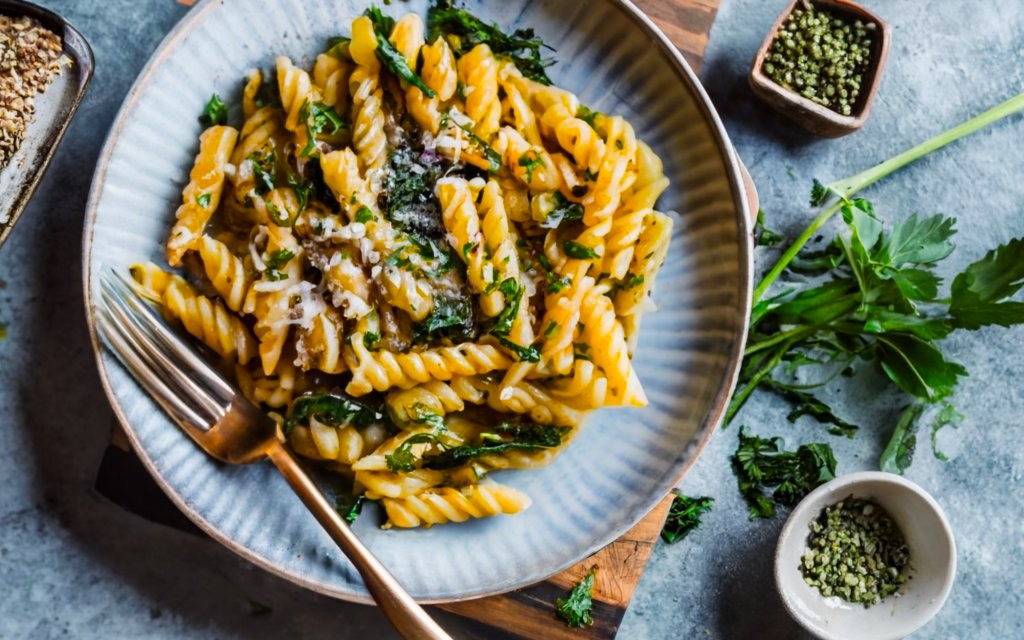Top 10 Beverages to Make with Garden Herbs: Refreshing, Healthy, and Delicious
As a passionate gardener, I’m always looking for ways to get the most out of my herb garden. This year I planted a variety of mint, basil, thyme, sage, and other herbs. While researching for ideas within my circle of friends, family members, I realized that beyond using my herbs for cooking or medicinal use there were so many possibilities for crafting refreshing drinks as well!
I’ve made herbal lemonade and iced tea for years, but wanted to get more creative with ingredients on hand. My family has passed down recipes for infusing garden herbs into beverages for generations. I figured it was time to dust off my great grandmother’s handwritten notes and give some a try.
After experimenting with different herb combinations and ratios, I came up with a list of my 10 favorite herbal beverages to make using my garden herbs and fruit from local farms. The endless blend of flavors and health benefits from herb-infused drinks inspired me to share these recipes. Even if you don’t have an extensive herb plot, just a few pots of mint, basil or lemon balm can transform water or tea into a nourishing drink.
I hope these herbal beverage ideas provide you with inspiration to utilize the tasty herbs from your garden too. Please let me know in the comments if you have a favorite herb-infused drink not mentioned here! I’m always looking for new ways to savor the flavors and aromas from my backyard herb oasis.
While I tried to provide a good overview of my favorite herbal beverages in this article, I certainly couldn’t cover every tasty recipe and blend in depth. I created separate detailed posts on herbal lemonade, herbal iced tea, herbal cocktails, and the other drinks so readers could explore each one further. You’ll find the links to these posts included in their respective sections. Just like many other remedies, cooking tips I cover frequently across the website.
What Are Herbal Beverages?
Herbal beverages are drinks made by infusing herbs, spices, and other plant materials in water, juice, tea, milk, or other liquids. They provide a refreshing, flavorful, and often healthy alternative to sugary sodas, juices, and coffee drinks.
Some of the most popular herbal beverages include herbal teas (also called tisanes), herbal lemonades, fruit-herb juices, and herb-infused waters. They can be served hot, like tea, or chilled and over ice on a hot summer day.
Drinking herbal beverages made with garden herbs provides a variety of potential health benefits. Herbs like mint, lemon balm, and ginger can help soothe digestion. Chamomile and lavender have calming properties to relieve stress and anxiety. Other herbs like turmeric, elderberry, and dandelion are packed with antioxidants.
Benefits of Drinking Herbal Beverages
Before diving into the recipes, let’s look at some of the potential benefits of incorporating more herbal beverages into your diet:
- Herbs like mint and ginger can aid digestion and relieve nausea, gas, bloating, and upset stomach.
- Calming herbs like chamomile, lavender, and lemon balm promote relaxation and ease anxiety and stress.
- Herbs high in antioxidants like rosemary, thyme, and sage may help boost immunity.
- Some herbs like dandelion and nettle contain diuretic properties to flush out toxins.
- Herbs like turmeric, ginger, and cinnamon have anti-inflammatory properties.
- Many herbs are naturally caffeine-free, making them a nice calming evening drink.
- Herbal beverages are often lower in sugar and calories than traditional sodas, juices, and coffee drinks.
So in addition to adding flavor, herbs can provide some great health perks as well. Let’s get to sipping!
Top 10 Herbal Beverages to Make with Garden Herbs
Here is an overview of the top 10 herbal beverage recipes to make with fresh or dried garden herbs:
- Herbal Lemonade
- Herbal Iced Tea
- Herbal Mocktail
- Herbal Cocktail
- Herbal Smoothie
- Herbal Latte
- Herbal Water
- Herbal Shrub
- Herbal Syrup
- Kombucha
Keep reading for specific recipes and instructions for crafting each one at home. First up is a classic – herbal lemonade!
Herbal Lemonade
A homemade herbal lemonade is a perfect light and refreshing summer drink. You can play around with different herb combinations, but here is one tasty recipe to try:
Recipe for Herbal Lemonade
Ingredients:
- 3 cups water
- 1 cup loosely packed fresh herb leaves (try basil, mint, lemon balm, lavender)
- 1⁄2 cup fresh lemon juice
- 1⁄4 cup honey or agave nectar
- Sliced lemons and herbs for garnish
Instructions:
- Bring the water to a boil, then remove from heat.
- Add the fresh herbs, cover and steep for 20-30 minutes.
- Strain the herbal water into a pitcher, pressing on the herbs to extract as much flavor as possible. Discard the spent herbs.
- Stir in the lemon juice, honey/agave, and additional water if needed. Taste and adjust sweetness as desired.
- Chill in the fridge.
- To serve, fill glasses with ice, pour in the lemonade and garnish with lemon slices and fresh herbs.
Benefits of Drinking Herbal Lemonade
- Herbs like mint, basil and lemon balm add digestive benefits.
- The vitamin C in lemons boosts immunity.
- It’s lower in sugar and calories than traditional lemonade.
- Much more hydrating than sugary sodas or juices.
- Provides a light, refreshing beverage on hot days.
Herbal Iced Tea
Iced tea is also a perfect summer sipper. Brew it up with an herbal twist using any of your favorite garden herbs and tea leaves.
Recipe for Herbal Iced Tea
Ingredients:
- 5-6 cups water
- 4-5 herbal tea bags (try chamomile, peppermint, rooibos)
- 1⁄4 cup loosely packed fresh herb leaves (mint, lemon balm, rosemary, thyme)
- Honey, agave, or lemon to taste (optional)
Instructions:
- Bring 4-5 cups of water to a boil.
- Remove from heat and add the tea bags and fresh herbs. Let steep for 5-10 minutes.
- Remove tea bags and herbs.
- Add remaining 1-2 cups cold water.
- Stir in sweetener if desired.
- Refrigerate until chilled.
- To serve, fill glasses with ice, pour in tea and add lemon slices or extra herbs for garnish.
Benefits of Drinking Herbal Iced Tea
- Herbal teas like chamomile, peppermint and rooibos have calming properties.
- Mint improves digestion, while lemon balm relieves stress.
- Rosemary may boost brain function and memory.
- More hydrating than sugary sodas, juices or bottled iced teas.
- Provides antioxidants from the herbal tea leaves.
Herbal Mocktail
For an alcohol-free herbal beverage, try making a refreshing mocktail with herbs, fruit juice and soda water.
Recipe for an Herbal Mocktail
Ingredients:
- 1⁄2 cup loosely packed fresh herb leaves (basil, mint, rosemary)
- 1⁄2 cup simple syrup or agave nectar
- 1⁄2 cup lemon or lime juice
- 2 cups soda water or ginger ale
- Ice cubes
- Thinly sliced fruit for garnish (lemon, lime, orange, berries)
Instructions:
- Muddle the fresh herbs in a cocktail shaker to release their flavors.
- Add the simple syrup, lemon/lime juice and a handful of ice. Shake vigorously for 20-30 seconds.
- Strain into glasses filled with ice. Top with soda water and garnish with fruit slices.
For a smoothie-style mocktail: Blend the herbs, simple syrup, lemon/lime juice and 1 cup ice in a blender until smooth. Pour into glasses and top with soda water and fruit garnish.
Benefits of Drinking Herbal Mocktails
- Herbs like mint and basil aid digestion.
- No alcohol, sugar or artificial ingredients.
- Fruit juice provides vitamin C.
- Carbonation from soda water gives a refreshing feel.
- Hydrating and light for summer.
Herbal Cocktail
For an alcoholic twist, try incorporating fresh herbs into cocktails like mint juleps, rosemary gimlets or basil smashes.
Recipe for an Herbal Cocktail
Ingredients:
- 2 oz vodka or gin
- 1⁄2 oz fresh lemon or lime juice
- 1-2 tsp chopped fresh herbs (basil, rosemary, thyme, sage)
- 1⁄2 oz simple syrup
- Soda water
- Herbs and citrus wheels for garnish
Instructions:
- Lightly muddle the fresh herbs in a cocktail shaker.
- Add ice, vodka/gin, lemon/lime juice and simple syrup. Shake well for 20-30 seconds.
- Strain into an ice-filled glass. Top with soda water.
- Garnish with extra herbs and citrus wheels.
Benefits of Drinking Herbal Cocktails
- Herbs like basil and thyme have antioxidants.
- Flavorful twist on a traditional vodka or gin drink.
- Citrus adds vitamin C.
- Hydrating soda water cuts the alcohol content.
Herbal Smoothie
For a nutrient-packed breakfast or snack, blend up a tasty herbal smoothie with yogurt, fruit and fresh herbs.
Recipe for an Herbal Smoothie
Ingredients:
- 1 cup plain yogurt or milk
- 1 banana, sliced and frozen
- 1⁄2 cup mixed frozen berries
- 1-2 tsp chopped fresh herbs (mint, basil, parsley)
- 1 tbsp honey or agave nectar
- 1⁄2 cup ice
Instructions:
- Combine all ingredients in a blender.
- Blend until smooth and creamy, about 1 minute.
- Pour into a glass and top with extra fresh herbs, if desired.
Benefits of Drinking Herbal Smoothies
- Provides protein, fiber, antioxidants and vitamins.
- Mint improves digestion while basil has anti-inflammatory effects.
- Berries add vitamin C and polyphenols.
- Thick, creamy texture is filling and satisfying.
- Perfect energizing breakfast or pick-me-up snack.
Herbal Latte
For a soothing caffeine-free alternative to coffee, try this creamy herbal latte.
Recipe for an Herbal Latte
Ingredients:
- 2 cups milk or non-dairy milk
- 2 herbal tea bags (chamomile, peppermint, rooibos)
- 1-2 tsp chopped fresh herbs (mint, rosemary, lavender)
- 1-2 tbsp honey or maple syrup
- Pinch of cinnamon, nutmeg or cardamom
Instructions:
- Heat the milk gently until steaming but not boiling.
- Remove from heat and add the tea bags, fresh herbs and spices. Let steep 5-10 minutes.
- Discard tea bags. Using an immersion blender, blend the latte for a frothy texture.
- Stir in honey/maple syrup to taste.
Benefits of Drinking Herbal Lattes
- Chamomile, lavender and mint provide calming properties to ease stress.
- Dairy or non-dairy milk gives protein, vitamins and minerals.
- Naturally caffeine-free, so can be enjoyed in the evenings.
- Frothy, comforting and delicious.
Herbal Water
For a simple, refreshing beverage, infuse water with fresh garden herbs and fruit.
How to Make Herbal Water
Ingredients:
- Pitcher of water
- Chopped fresh herbs (mint, basil, lemon balm, rosemary)
- Sliced fruit (lemon, lime, orange, cucumber, berries)
Instructions:
- Fill a pitcher with cold water.
- Add the fresh herbs and sliced fruit to the water.
- Let infuse in the fridge for 1-2 hours, or overnight.
- Drain the water into glasses filled with ice.
Benefits of Drinking Herbal Water
- Provides hydration without sugar or calories.
- Herbs add light flavor without bitterness or astringency.
- Fruit adds natural sweetness and vitamin C.
- Infusing overnight allows maximum flavor extraction.
- Easy way to drink more water.
Herbal Shrub
A shrub is a drinking vinegar made by infusing fruit and herbs in vinegar. Tart, tangy and refreshing!
Recipe for an Herbal Shrub
Ingredients:
- 1 cup chopped fresh herbs (thyme, rosemary, sage, mint)
- 3 cups berries, pitted cherries or chopped fruit
- 2 cups apple cider vinegar
- 1 cup sugar
Instructions:
- Combine herbs, fruit and vinegar in a jar. Let infuse 3-10 days.
- Strain out solids and stir in sugar until dissolved.
- Store in fridge up to 6 months.
- To serve, mix 1-2 tablespoons shrub with soda water or cocktail.
Benefits of Drinking Herbal Shrubs
- Herbs and fruits provide antioxidants, vitamins and minerals.
- Vinegar has anti-microbial properties.
- Lightly sweetened for a tangy, complex flavor.
- Small amounts pack big flavor.
Herbal Syrup
An infused syrup made with herbs and natural sweeteners is delicious mixed into drinks or desserts.
Recipe for an Herbal Syrup
Ingredients:
- 1 cup loosely packed fresh herbs (basil, sage, thyme, rosemary)
- 1 cup water
- 1 cup honey, maple syrup or sugar
Instructions:
- Simmer water and herbs for 5-10 minutes. Remove from heat.
- Stir in sweetener until dissolved. Let stand 30 minutes.
- Strain out herbs; store syrup in the fridge up to 6 weeks.
- Drizzle over drinks, desserts, pancakes, fruit, and more!
Benefits of Drinking Herbal Syrups
- Provides concentrated herbal flavor and sweetness.
- Honey and maple syrup have nutrients and antioxidants.
- Versatile ingredient to flavor drinks, desserts, yogurt and more.
- Keeps in the fridge for weeks.
Kombucha
Finally, fermented kombucha tea offers probiotics, vitamins and enzymes. Infuse your brew with herbs for extra benefits.
Recipe for Kombucha
Ingredients:
- 5 bags black or green tea
- 1 cup sugar
- 1 scoby starter culture
- 1-2 cups chopped fresh herbs (ginger, mint, lemongrass)
- Optional flavorings: juice, berries, citrus zest
Instructions:
- Brew tea with sugar. Let cool and stir in scoby.
- Ferment 7-21 days. Taste regularly and bottle when desired tartness is reached.
- Optional: Infuse with herbs, fruit or other flavors during second ferment.
Benefits of Drinking Kombucha
- Provides probiotics for gut health.
- Herbs add antioxidants, phytonutrients and flavor.
- Vitamins and enzymes from fermentation process.
- Naturally low in sugar and calories.
- Lightly effervescent and refreshing chilled.
Conclusion
Herbal beverages made with garden herbs provide a tasty and healthy way to stay hydrated. Infusing drinks with herbs adds flavor, nutrients, and potential health benefits ranging from improved digestion and immunity to reduced inflammation and antioxidants.
Some top herbs to use in beverages include mint, lemon balm, ginger, chamomile, thyme, rosemary, basil and lavender. Combine these herbs with fruit, tea, juice or soda water to craft refreshing options like herbal lemonade, iced tea, mocktails, smoothies, infused waters and more.
Whipping up herb-infused beverages is simple, requires minimal equipment, and allows you to reap the perks of your garden herbs all year round. Just add your favorite herbs to hot or cold liquids, let them steep to extract flavor and bring out their benefits, then strain and enjoy these nourishing drinks.
With endless combinations of garden herbs, mix and match to find your perfect refreshing, healthy and delicious herbal beverages to make this summer and beyond!
FAQ
What are some good herbs to use in drinks?
Some of the best herbs for infusing into beverages include mint, lemon balm, chamomile, lavender, basil, thyme, rosemary, ginger, and sage.
What liquids work well for making herbal drinks?
You can infusion herbs into water, tea, juice, milk, soda water, alcohol like vodka or gin, vinegar for shrubs, kombucha, and more.
How long do you steep fresh herbs to infuse flavor?
For hot teas, steep fresh herbs 5-10 minutes. For cold infusions like herbal water, steep 1-2 hours or overnight. For maximum extraction, gently muddle or crush the herbs first.
Do you need special equipment to make herbal beverages?
All you need is a saucepan, fine-mesh strainer, pitcher, and glass jars or bottles for storage. A cocktail shaker, blender or immersion blender provide more options but are not essential.
How long will herbal beverages keep?
Most herb-infused drinks are best consumed fresh within 3-5 days. Shrubs, syrups, and kombucha can keep for weeks or months refrigerated.
What’s the best way to use dried herbs?
For dried herbs, use about half the amount called for with fresh. Steep in hot water 10-15 minutes, then strain.
Can children drink herbal beverages?
Yes, herbal drinks are fine for older children in moderation. Avoid giving infants and toddlers chamomile, mint, sage, and licorice. Consult your pediatrician.
Are herbal beverages safe during pregnancy?
Some herbs like chamomile and lavender are considered safe in moderation. Others like parsley and sage should be avoided. Check with your doctor about consumption during pregnancy.






